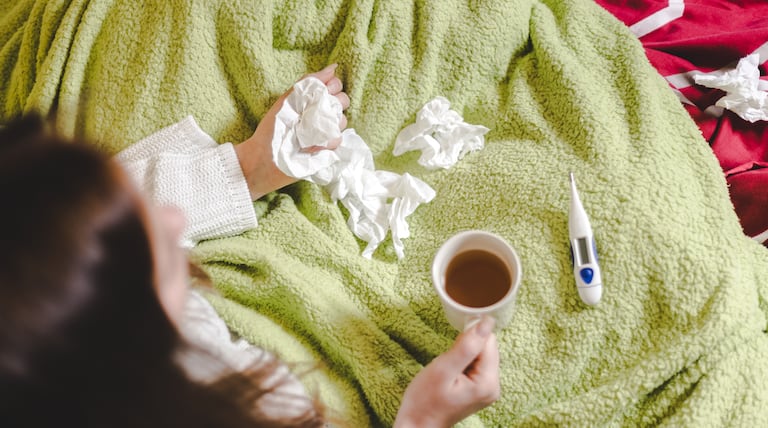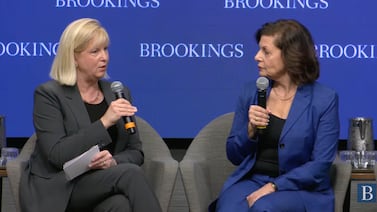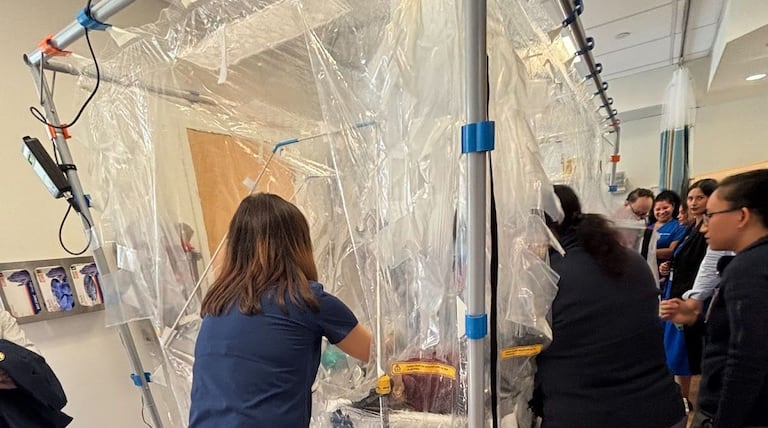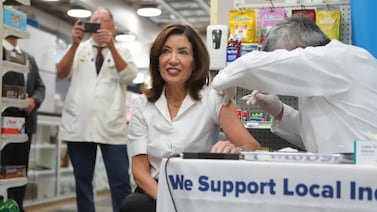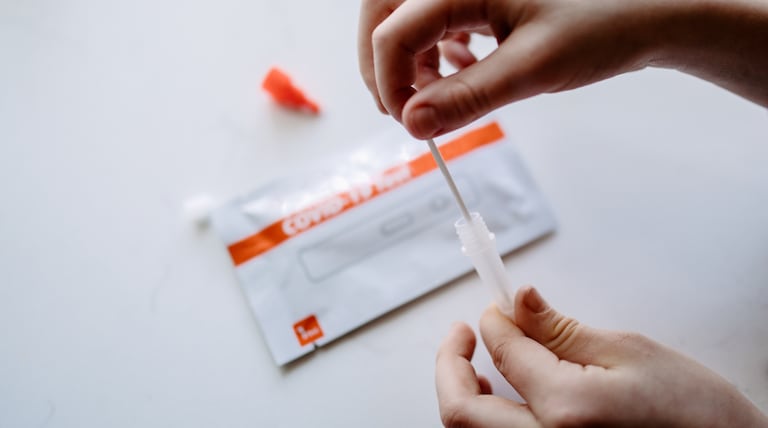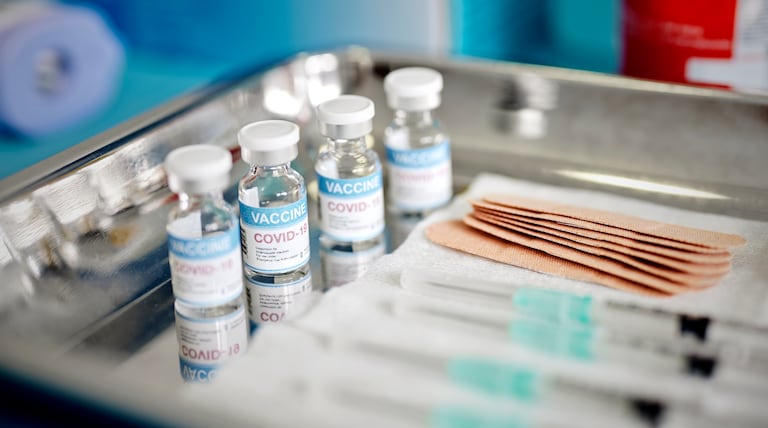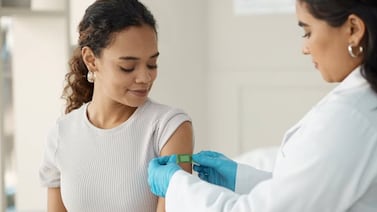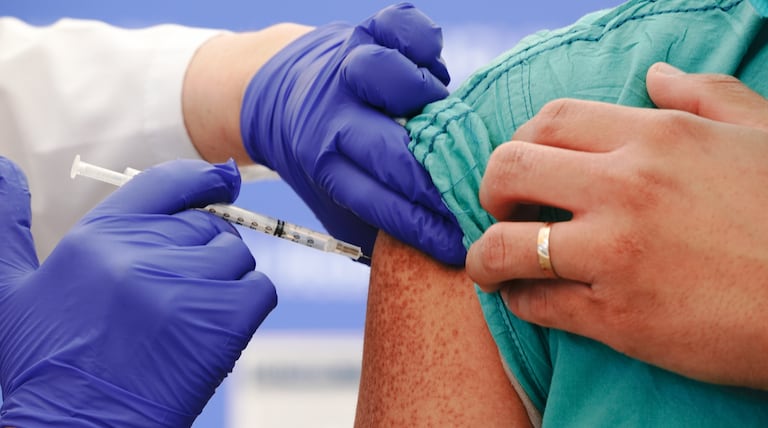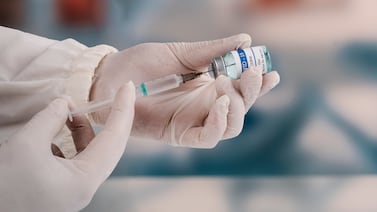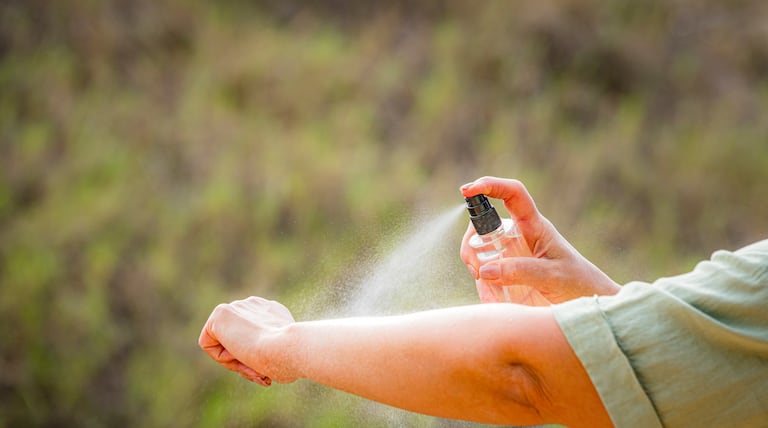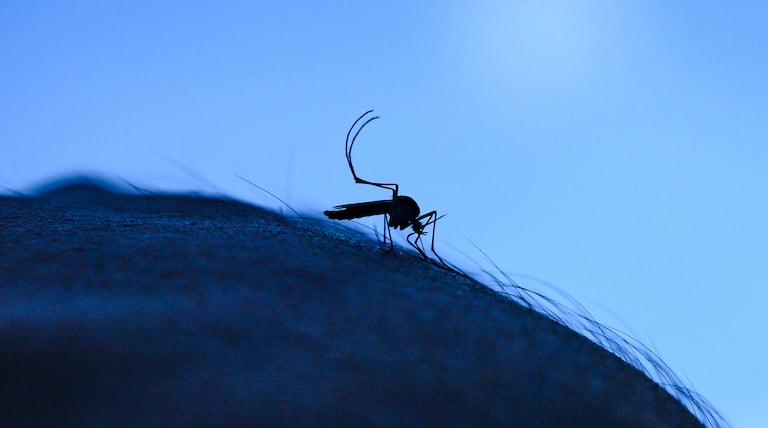They urge vaccinations, masking in crowds, and prompt treatment to prevent complications as the winter virus season picks up.
The law's broad language threatens the state’s ability to prevent illness and death from infectious diseases, and, if replicated elsewhere, it could unravel decades of progress in public health.
As we head into Thanksgiving, when many of us will be traveling to see loved ones, flu and RSV are top of mind. To reduce the spread of illness, consider masking in indoor crowded spaces.
In the study, the link between Covid and developmental delays was strongest when infection occurred late in pregnancy, during the third trimester. That’s also when the fetal brain is growing most rapidly.
The discussion at the Brookings Institution in Washington, D.C., explored coverage of the outbreak's origin: Was it caused by an accident at a lab in Wuhan, China? Or an infected animal at a Wuhan market or in the wild?
About 140,000 people across the state benefit from enhanced Affordable Care Act subsidies. Cutting them would be more expensive for everyone in the long run.
'We are able to give the vaccine now without a prescription. We just have to have a convo with the patient and review the screening form,' said Dr. Johnathan Hamrick, an Atlanta pharmacist.
Last year’s flu season was particularly severe, with the 280 pediatric flu-associated deaths nationwide, a record high, according to the CDC.
From shifting Covid-19 vaccine recommendations and a debate over Tylenol and autism, to declining Covid levels in New York and even a case of eastern equine encephalitis, there’s a lot to sort through.
After the FDA changed its regulations around the Covid vaccine to limit access, New York state crafted a workaround to preserve people’s ability to get a booster. Nonetheless, confusion has reigned in pharmacies across NYC.
The advisory panel to the CDC argued over who should get the new Covid vaccine. In the end, they decided to let people decide for themselves.
Covid is rising, what to know about vaccine recommendations, peak mosquito season, and a Legionnaires' outbreak in Westchester County.
The federal advisory panel may make recommendations on who should get Covid shots, as well as how hepatitis B and MMRV vaccines are administered to children. Here's what to know.
It's a temporary solution, but you can now get a Covid-19 vaccine at New York pharmacies without a prescription.
A delay in recommendations from a CDC panel on who should get the shots has spurred Georgia pharmacies to require a prescription.
Unlike previous years, when the Covid vaccine was widely available at retail pharmacies, this year you may need a prescription.
Chaotic government processes and upheaval have left Covid vaccine recommendations in limbo, especially in New York.
Many drugstores in Georgia say they will require a prescription for the updated Covid vaccine until a federal committee makes firm recommendations on who should get the shot.
It’s not just the bugs: Recent events, from a bus crash in upstate New York to the close of a Legionnaires’ outbreak, show how fragile our systems can be, and how directly that fragility impacts our health.
Algal blooms at beaches and a bad year for hand, foot, and mouth disease are also part of the latest public health news for New York.



